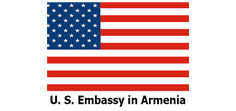The Council of Europe Convention on Preventing and Combating Violence against Women and Domestic Violence, known as the Istanbul Convention, has triggered massive debate and speculation in Armenia in recent days.
Refraining from substantive examination of the Convention, the Fact Investigation Platform has decided to address a number of controversial statements and allegations related to the document.
It should be noted that the Convention was published for signing in Istanbul in 2011. The objective of the Convention is to prevent and protect women from all forms of violence, eliminate discrimination, promote equality between men and women. The Convention has been signed and ratified by 34 out of 47 member states of the Council of Europe.
Eduard Sharmazanov’s claims
Republican Party Spokesman Eduard Sharmazanov, who is one of the most active opponents of the Istanbul Convention, claims that this convention “did not enter the agenda of the National Assembly, it was not actual” during their rule.
It should be reminded that Armenia joined the Istanbul Convention during the RPA rule.
On December 28, 2017, Karen Karapetyan’s government approved the Convention with four reservations. About a month later (18 January 2018), Armenia’s representative in the Council of Europe, Ambassador Paruyr Hovhannisyan signed it in Strasbourg.
Sharmazanov also claims that Armenia has signed the Istanbul Convention but has not ratified it, as did many EU countries such as Great Britain, Greece, Croatia, Slovakia, Czech Republic, Latvia and Lithuania.
The RPA spokesman partially falsifies facts as both Greece and Croatia have ratified the Convention. Greece ratified it on June 18, 2018, and Croatia on June 12, 2018.
As for the UK, the latter signed the convention in 2012, but has not ratified it so far. The British Government’s 2017 Report on the Promotion of the Istanbul Convention states that the government treats its international obligations seriously and takes steps to ratify the Convention. However, the UK will ratify the Convention only when it will be possible to bring to justice the crimes that were committed outside the UK.
Thus, two of the countries that Sharmazanov mentioned ratified the Convention last year, and Britain has not yet ratified it because it also wants to prevent and punish instances of domestic violence and violence against women outside the country. As for Slovakia, the Czech Republic, Latvia, and Lithuania, these countries have not yet ratified the Convention.
Davit Harutyunyan’s claims
In an interview to Hraparak.am, Former Minister of Justice Davit Harutyunyan also touched upon the ratification of the Istanbul Convention, considering it problematic.
“… Moreover, the countries that see danger, that have ratified it with reservations and now face serious problems, because ratification with reservations does not mean that those reservations can last for a long time. They have the maximum term, and those countries that have ratified, many issues are not resolved at this moment and they do not find solutions.” Harutyunyan said.
Meanwhile, Harutyunyan had not voiced and warned of any possible problems and complications when reporting on joining the Istanbul Convention at the December 28, 2017 cabinet meeting. “I must say that in connection with certain provisions of the Convention, Armenia offers reservations and a number of provisions will not be valid for Armenia. It is related to the peculiarities of our legal system” Harutyunyan said.
Moreover, no government official had any question regarding the content of this Convention during the Cabinet meeting.
It is also noteworthy that the reservations with which the Republic of Armenia signed the Convention in 2018 do not refer to the provisions which are now speculated on and that “violate the traditional values of the Armenian people”. The reservations are as follows:
- Article 30, Paragraph 2,
- Article 55, Paragraph 1 in respect of offenses of minor gravity under Article 35,
- Article 58, in respect of Article 37,
- Article 59.
For instance, the provision in Article 30, Paragraph 2 refers to adequate state compensation to those who have sustained serious bodily injury or impairment of health.
Ara Zohrabyan’s claims
President of the Chamber of Advocates of Armenia Ara Zohrabyan is also one of the radical critics of the Istanbul Convention. The latter, however, did not express any concern or objection on this subject in December 2018, when the then authorities signed the Convention “contradicting the Constitution”.
Zohrabyan considers Article 12 (1) as one of the most controversial points of the convention and cites: “The Convention forces states to eradicate prejudices, customs, traditions and all other practices which are based on the idea of stereotyped roles for women and men”.
However, the President of the Chamber of Advocates makes an incomplete quote from this part of the article. In reality Article 12 (1) says the following: “Parties shall take the necessary measures to promote changes in the social and cultural patterns of behavior of women and men with a view to eradicating prejudices, customs, traditions and all other practices which are based on the idea of the inferiority of women or on stereotyped roles for women and men.”
Zohrabyan has omitted the phrase “inferiority of women”, thus distorting the content.
Zohrabyan considers it symbolic that the Convention was signed “in Turkey (in Istanbul), which committed the most abhorrent of the crimes, the crime of genocide, and denies it.” Selection of Istanbul as venue for the event is just a coincidence. For example, the Council of Europe Convention on Cybercrime is called the Budapest Convention, and the Convention on Laundering, Search, Seizure and Confiscation of Proceeds from Crime and on the Financing of Terrorism is called the Warsaw Convention, as these conventions were published at meetings in those cities. Thus, Zohrabyan’s speculation regarding Istanbul merely aims to have an emotional impact on the public.
Hovhannes Nazaretyan
Karine Kirakosyan

 FACTOMETER
FACTOMETER









